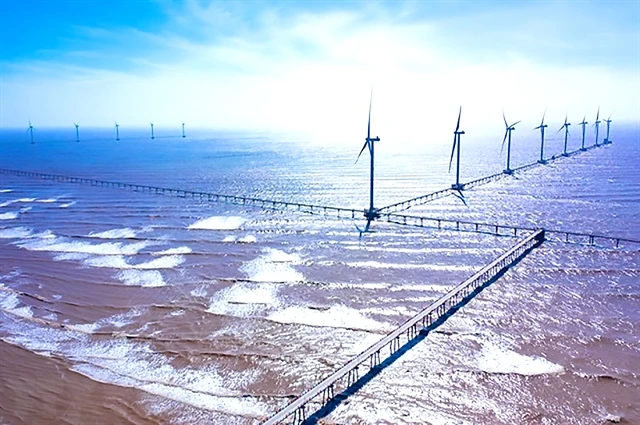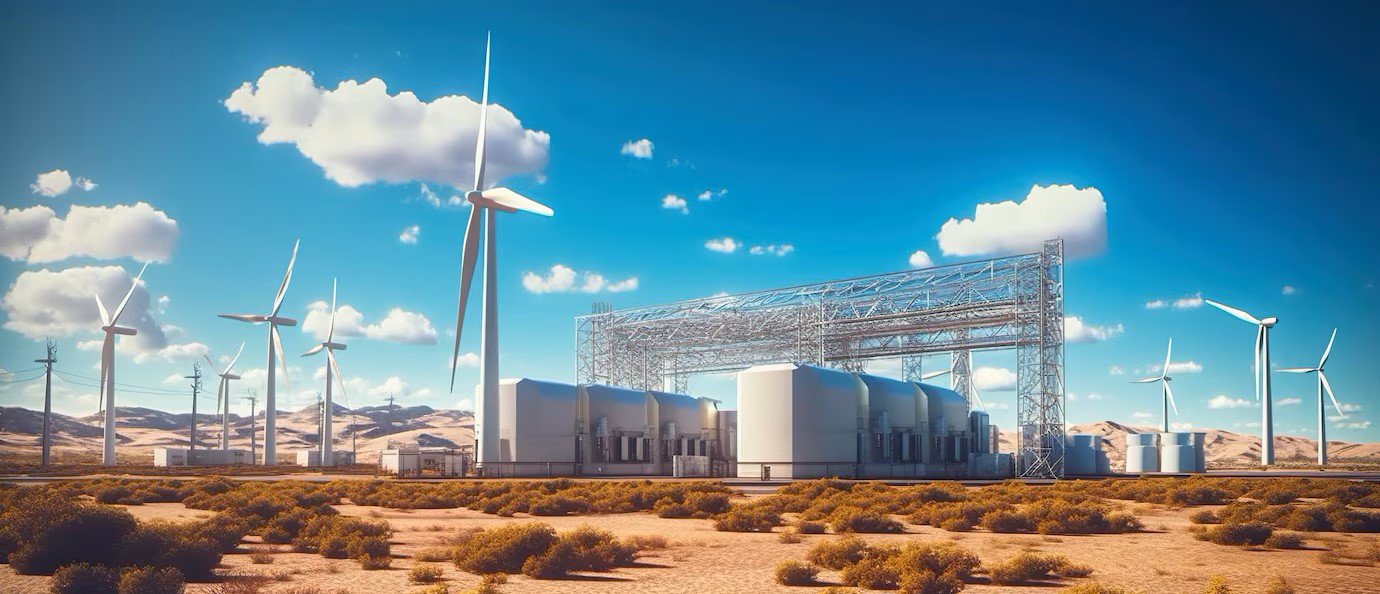The support policies for hydrogen development need to reduce risks to investors by including hydrogen in the national energy planning to create a legal framework and priority list for hydrogen development projects and related fields.
HÀ NỘI — The Government should implement support policies to ensure the development and competitiveness of clean hydrogen sources in the country.
According to Deputy Minister of Industry and Trade Nguyễn Sinh Nhật Tân, hydrogen has been recognised as a clean and indispensable energy source in the energy structure of many countries to achieve the goal of carbon neutrality by 2050.
As of early 2023, more than 40 countries have issued national hydrogen strategies and major financial support policies to form and develop the hydrogen industry. In particular, the EU aims to produce green hydrogen to account for 13-14 per cent of the bloc’s energy structure by 2050 while Japan and South Korea target to develop clean hydrogen, including green hydrogen and blue hydrogen, respectively, to account for 10 per cent and 33 per cent in their national energy structure by 2050.
In Việt Nam, the Ministry of Industry and Trade is drafting a Hydrogen Production Strategy and deploying gas power and offshore wind power projects according to the Politburo’s Resolution No. 55-NQ/TW on the strategic orientation of Việt Nam’s national energy development until 2030 with a vision to 2045 and Decision No. 893/QĐ-TTg on the National Energy Master Plan for the 2021-30 period with a vision to 2050.
Under the draft strategy, Việt Nam will promote the development of hydrogen energy production and hydrogen-derived fuels in potential areas to target a hydrogen output of 100,000-500,000 tonnes by 2030 and 10-20 million tonnes by 2050.
According to the Vietnam Petroleum Institute (VPI), the cost of producing clean hydrogen (including blue hydrogen and green hydrogen) until 2025 will still be very high. Specifically, the production costs of blue hydrogen and green hydrogen in Việt Nam are still 1.3 and 2.1 times higher than grey hydrogen (hydrogen is produced with fossil fuels such as natural gas or coal and accounts for about 95 per cent of the world’s hydrogen production).
For clean hydrogen to develop and gradually improve in Việt Nam, the implementation of the Government’s supportive policies is necessary to ensure the competitiveness of clean hydrogen sources.
Specifically, the support policies for hydrogen development need to reduce risks to investors by including hydrogen in the national energy planning to create a legal framework and priority list for hydrogen development projects and related fields.
Besides implementing preferential tax rate policies, the Government should also develop technical standards and safety regulations to ensure synchronous development of the hydrogen value chain.
In addition, the support policies need to create demand for hydrogen in the national economy, such as financial support for infrastructure development projects serving the development of the hydrogen value chain and CO2 tax application to increase competitiveness for clean hydrogen.
With the advantage of production network and supply chain in green hydrogen development, Vietnam Oil and Gas Group (PVN) has participated in the process of planning strategies and policies to create the necessary legal framework for the development of green hydrogen.
According to General Director of PVN’s Vietnam Petroleum Technical Services Joint Stock Corporation (PTSC) Lê Mạnh Cường, the current cost of offshore wind power production in the world is still generally high. However, building offshore wind farms associated with synchronous development of green hydrogen production will be effective. Therefore, besides the efforts of enterprises, the Government needs to soon have a specific mechanism to develop offshore wind power and wind power associated with green hydrogen production.
In addition, for industries which domestic enterprises have enough capacity to meet market requirements, the Government should have specific regulations on production origin in Việt Nam to qualify for incentives, which will contribute to supporting domestic enterprises to develop and improve capacity. This is also the way many countries are implementing. — VNS



